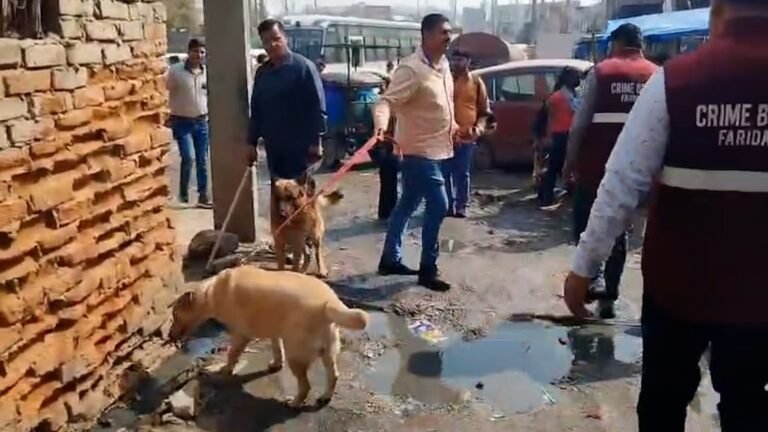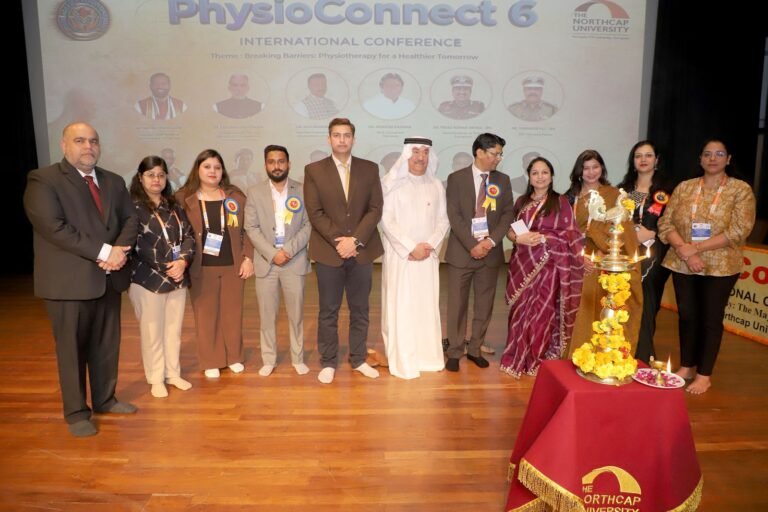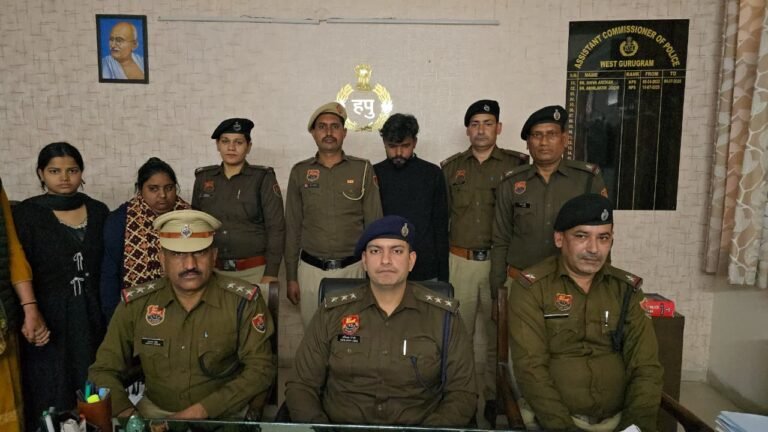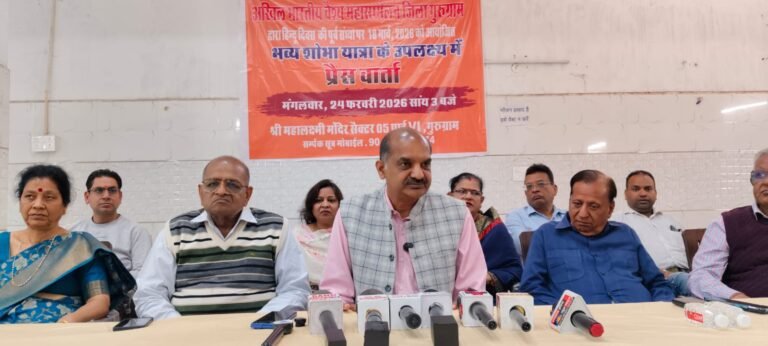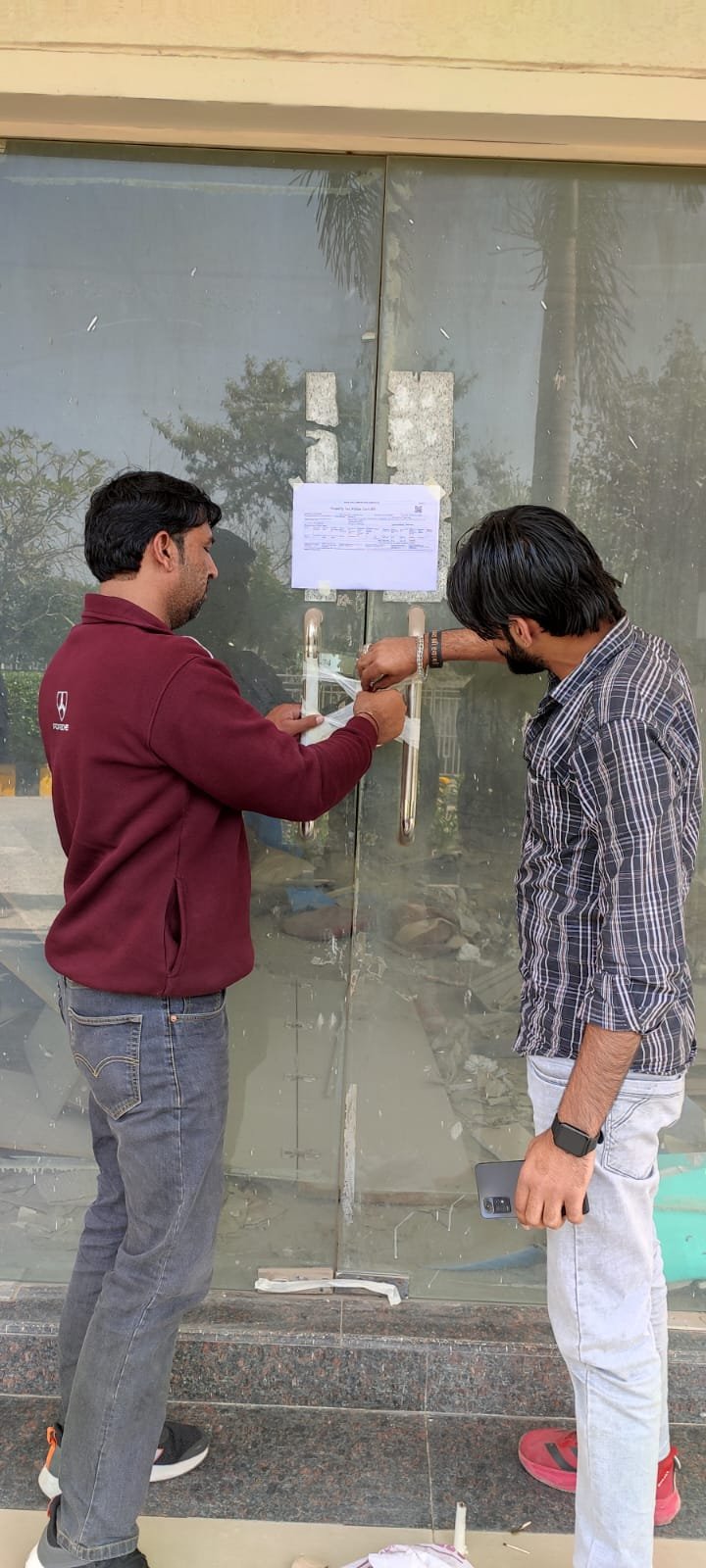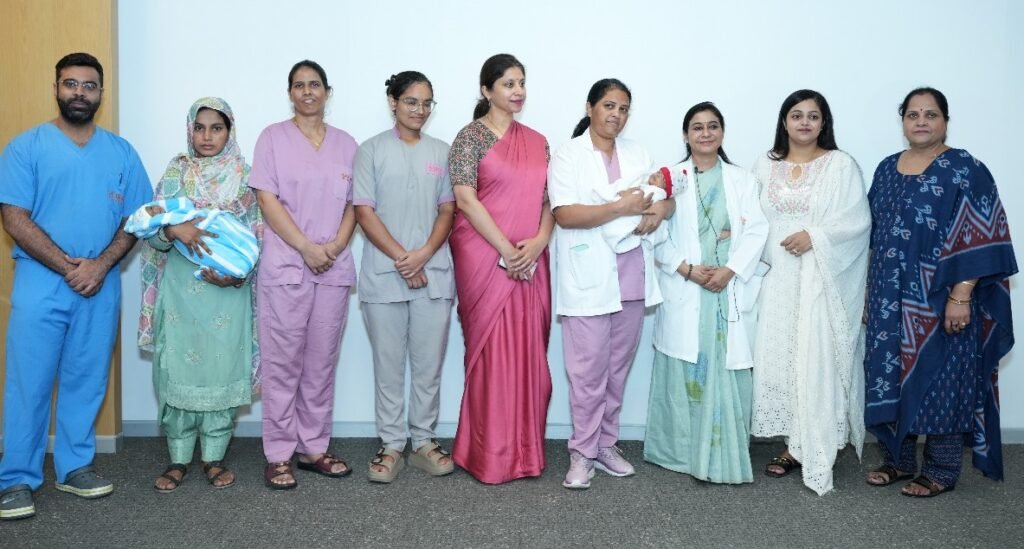
Bilkul Sateek News
Faridabad (Ajay Verma), 28th Aug. It sounds like the stuff of medical thrillers—but it happened for real in Faridabad. At Amrita Hospital, multiple babies were saved while still inside their mothers’ wombs, through high-risk and first-of-its-kind surgeries that changed the destiny of entire families. What parents once thought was the end, doctors turned into a miracle rebirth.
A Baby Born Twice: Premature Child with Collapsed Lungs Saved
For one family, heartbreak began at 23 weeks of pregnancy when doctors found severe fluid around the baby’s lungs. By 28 weeks, the child had developed hydrops fetalis—a terrifying condition that is often fatal even before delivery.
The baby was diagnosed with congenital chylothorax—a rare disorder in which lymphatic fluid leaks into the chest cavity, compressing the lungs and making it nearly impossible for them to expand.
With the baby’s life slipping away, Dr. Reema Bhatt, Head of Fetal Medicine, made a bold decision: to perform a thoracoamniotic shunt surgery inside the womb. Using a delicate tube, she drained fluid from the baby’s chest to relieve pressure on vital organs.
At 30 weeks, doctors performed an emergency delivery. The tiny baby, weighing just 1.8 kg, was born with fully collapsed lungs. Immediately ventilated, the newborn was placed in the Neonatal Intensive Care Unit (NICU) under Dr. Nidhi Gupta, Senior Consultant, Neonatology.
What followed were seven weeks of nail-biting intensive care. The baby was given chest drains, Octreotide injections to stop lymphatic leakage, and a special formula diet. Day by day, the lungs began to recover.
“We were told to prepare for the worst. There were nights we thought we had lost everything,” said the parents, in tears. “But today, we are taking our baby home. It feels like our child has been born twice.”
Doctors called it a rare triumph—global survival rates for congenital chylothorax are barely 50%.
Seventeen Years of Waiting, Saved in 21 Weeks
Another story unfolded with a 38-year-old IVF mother who had waited 17 long years for a child. At just 21 weeks, her unborn baby was diagnosed with hydrops fetalis caused by a massive placental chorangioma—a rare tumor that was stealing blood from the baby.
Instead of repeated risky blood transfusions, the Amrita team performed a first-in-North India intrauterine embolization. Under ultrasound and Doppler guidance, a clotting agent was injected to block the tumor’s blood supply.
The procedure proved decisive. The tumor stopped growing, the baby’s condition stabilized, and months later, the mother delivered a healthy baby at full term.
“Seventeen years I prayed for this child. When doctors said she may not survive, I broke down completely,” said the mother, clutching her newborn. “But Amrita gave me back my daughter. It’s like holding a dream in my arms.”
The father added, “We came in despair and walked away with joy. This hospital gave us the one thing we thought we had lost—hope.”
Twins Divided by Fate, United by Science
In Punjab, another mother carrying monochorionic twins faced devastation. One twin was critically deteriorating from Twin-to-Twin Transfusion Syndrome (TTTS), while the healthier twin risked death or severe brain damage due to their shared blood circulation.
“The healthier twin was at grave risk if the sicker one died in utero,” explained Dr. Bhatt. “We had to act immediately.”
The team performed a fetoscopic laser photocoagulation—a delicate in-womb surgery that used a tiny camera and laser to seal the abnormal blood vessel connections between the twins.
The weaker twin could not be saved. But the healthier one was delivered weeks later at 37 weeks, neurologically intact—a rare outcome in advanced TTTS.
“We lost one baby, but we saved the other. It’s a pain and relief we’ll carry forever,” said the grieving yet grateful mother. The father added, “When we thought we’d lose both, Amrita saved one. For us, that means the world.”
Miracles of Science, Miracles of the Heart
Doctors call these stories “miracles of science and courage.” Rare surgeries—an in-womb embolization for a placental tumor, a fetoscopic laser for TTTS, and a thoracoamniotic shunt for collapsed lungs—have made Amrita Hospital a lifeline for families across Haryana, Punjab, Himachal Pradesh, Western Uttar Pradesh, and beyond.
“These cases prove that unborn children don’t have to be written off,” said Dr. Reema Bhatt. “Every unborn baby deserves a chance, and every mother deserves to hear, ‘We won’t give up.’ At Amrita, that is our promise.”
Supported by obstetricians, neonatologists, anesthesiologists, pediatric surgeons, and NICU specialists, Amrita Hospital is now emerging as North India’s leading hub for fetal medicine. Families who once had to travel to South India for such interventions now find hope closer home.
For the parents who walked into Amrita with despair and walked out with joy, these aren’t just medical procedures—they are rebirths, miracles, and second chances.




